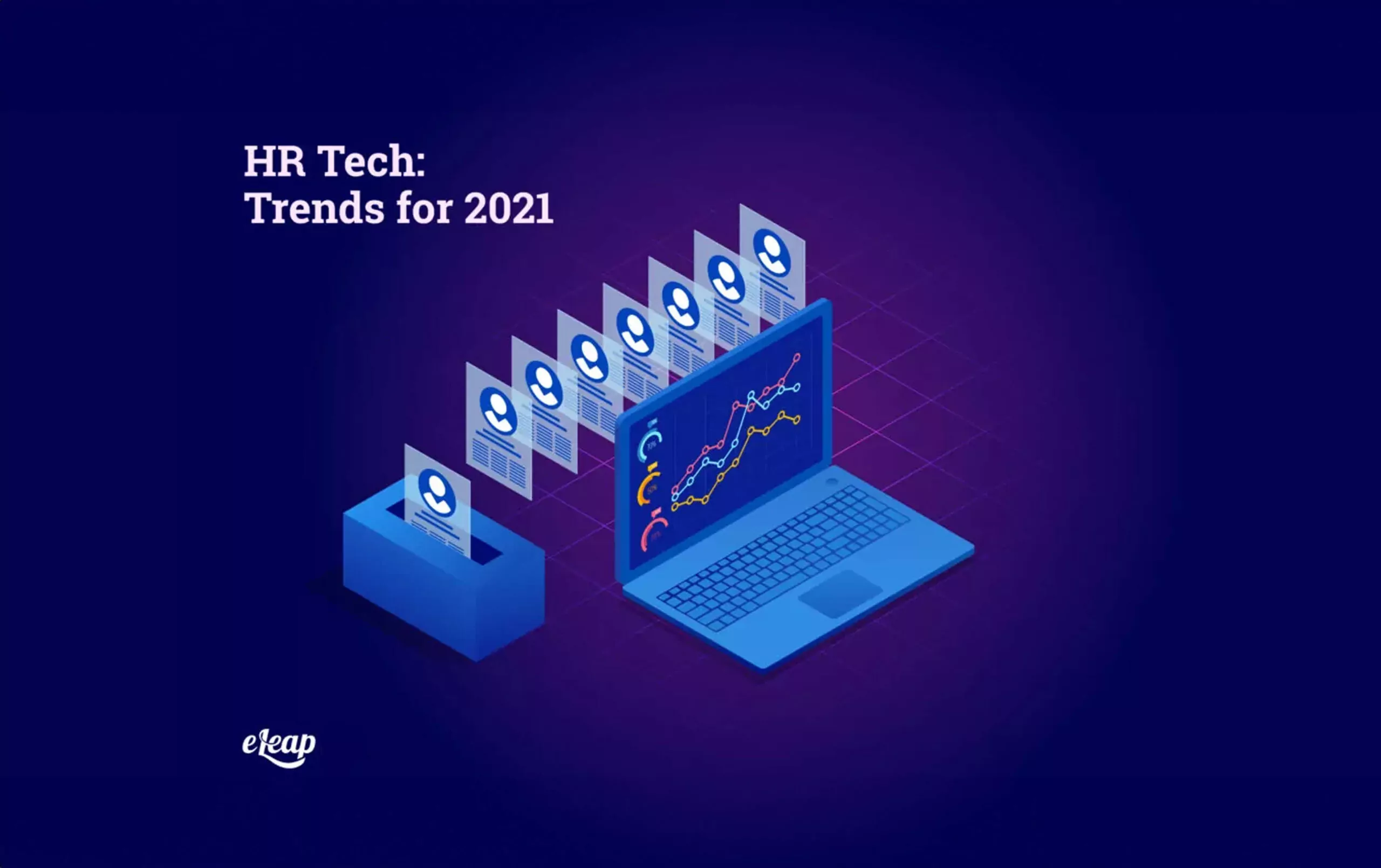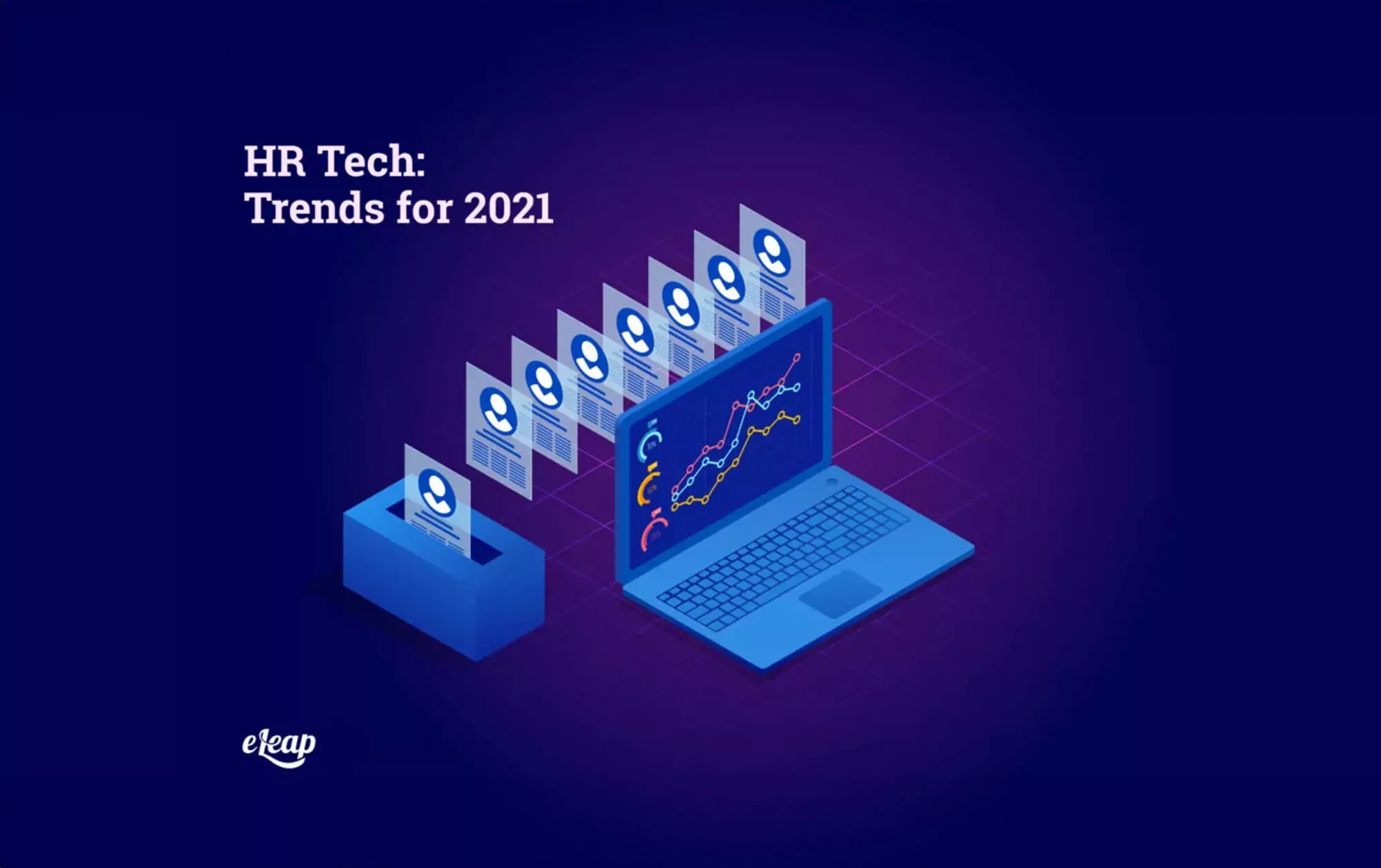HR Tech: Trends for 2021

Technology is a critical component of performance management. The massive shift to remote work (and remote management) in 2020 highlighted just how important technology is to all business functions. And, while 2021 promises to be less dire than its predecessor, technology will still play a central role in performance management and other HR functions.
With all the associated challenges of going remote in 2020, many businesses didn’t spend a lot on HR-specific tech. They were more focused on ensuring communication capabilities with platforms like Zoom and Microsoft Teams, as well as safeguarding data. However, 2021 is set to be a very different sort of year, and more companies are looking forward with an eye toward new HR technology and related systems.

Remote Work Is Here to Stay
Before the onset of the pandemic, many companies were leery of remote work. There were many fears – employees couldn’t manage their time effectively, work couldn’t be performed from home, and so many others. All of those proved unfounded. In fact, most companies noted that productivity was higher, employee engagement increased, and operational costs decreased.
All of that means remote work is here to stay (and many positions will remain remote permanently). While that’s good news for many, it’s something of a mixed bag when it comes to traditional HR functions. Look for technology in 2021 to begin filling in those gaps in some pretty key areas, including the following:
- Finances – Employees need remote access to payroll information, check stubs, and other financial data, up to and including remote access to paychecks themselves.
- Self-Service – Employees traditionally went to HR to ask questions, make adjustments to plans and tax statuses, and more. Most of that went out the window with 2020, but self-service portals can provide a digital solution that lets employees handle their HR-related needs from home.
- Virtual Performance Management – Performance management has seen a lot of changes over the last few years. One of the most interesting is the pandemic-enforced shift toward virtual performance management. HR tech will continue to evolve in this area to make it simpler and easier to conduct remote one-on-ones, check-ins, and handle things like disciplinary action.
Greater Focus on Wellness
The employee wellness focus was already developing before the pandemic. However, with lockdowns and social distancing, more people than ever became aware of just how precarious our mental and emotional states can be. For many firms, 2021 will be a time to stop paying mere lip service to employee wellness and finally roll out some real initiatives that do their people good.
Today, more leaders understand the need for and the role of wellness-related programs. In 2021, HR tech purchases will focus on creating a happy, thriving organizational culture, as well as ensuring that employees have the tools and resources necessary to achieve work/life balance. Some of the ways that HR tech will be used include the following:
- Online Support – 2020 showed us that no one is an island. We’re all interconnected, and when those connections are severed, we all suffer. One of the ways that technology will help HR pursue its mission is through online emotional and mental health support, including access to counselors/therapists, and more.
- Giving Back – Humans thrive when they’re able to do good for others. However, community-focused initiatives largely fell apart when the pandemic hit. HR technology will begin making it easier for employees to get involved in giving back to the community in many different ways (including time off for such activities).
- Telemedicine – Many doctor offices set limits on in-person visits during the pandemic, and a large portion of the US population chose to cut back on office visits to help slow the spread of the virus. 2021 will continue that trend, and telemedicine capabilities and policies will help ensure that employees can receive the care they need.
The Changes to Onboarding
Performance management begins with onboarding (as does L&D). However, things have radically changed since the beginning of 2020. Many companies froze their hiring during the pandemic, but are now thawing things out. The challenge here is that in-person onboarding is largely impossible except in certain industries, which means that new HR technology will be needed to streamline remote onboarding. Some of the changes to look for include the following:
- Remote Equipment Delivery – How will firms handle remote delivery of IT equipment and set up for new hires at their homes? Policies are required here, but so too is technology to allow remote connectivity and ensure security.
- Team Integration – New hires traditionally get a short period of time to meet their team members, learn the ropes, and get to know the company. That’s challenging to accomplish in a remote work scenario, but it is no less critical. HR must have technology that supports the new hire integration process and ensures they can hit the ground running.
- Onboarding Satisfaction – Getting feedback from new hires is crucial, but, again, remote work makes that hard to accomplish. With technology, HR team members can get feedback from new hires and determine what needs to change within the onboarding process. Not only is this important for improving processes, but for making new employees feel heard and valued – otherwise they could feel that they lack the tools or support they require.
Technology Is the Future of HR
Whether we’re talking about onboarding or telemedicine, employee self-service portals, or virtual performance management, technology is the key. 2020’s impact on the workplace was profound, and while not all of it was negative, it will require a concerted, strategic approach to handle all of the changes while ensuring your teams have the support and tools they need for success.
Increasingly, HR technology is playing a central role in an organization’s ability to pursue its goals and support its people. The trends discussed above are just a glimpse of the future – the truth is that technology will become ever-more integrated with every business process and practice. Is your organization prepared for it?